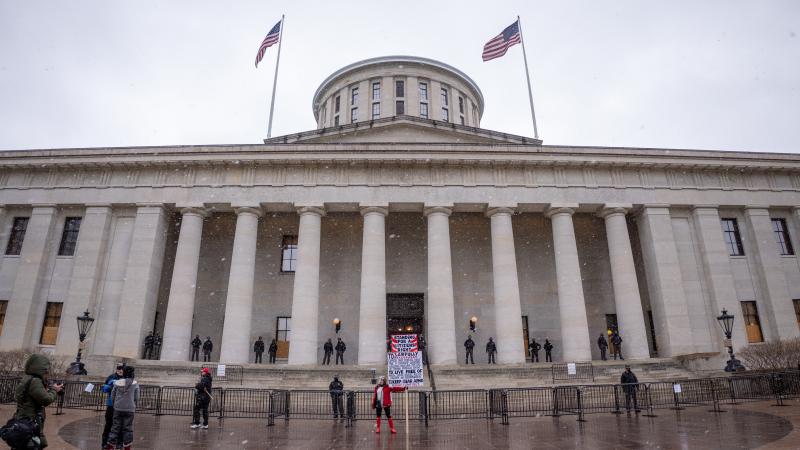Commerce sacrifices lobstermen to save whales, offers $2M to study how to prop up lobster industry
Taxpayers are on the hook for $17.1 million to help reeling industry cope with economic fallout from new federal regulations, and tens of millions more could be approved if new bipartisan bill passes.
The Golden Horseshoe is a weekly designation from Just The News intended to highlight egregious examples of wasteful taxpayer spending by the government. The award is named for the horseshoe-shaped toilet seats for military airplanes that cost the Pentagon a whopping $640 each back in the 1980s.
This week's Golden Horseshoe is awarded to the Department of Commerce. After issuing new regulations last year aimed at saving whales but severely impacting the lobster industry, the department is now soliciting applications for $2 million in grant funding to study how its regulations will impact lobster fishing and to create partnerships to assist adversely affected lobstermen.
The Commerce Department's National Oceanic and Atmospheric Administration (NOAA) issued new regulations in August 2021 to reduce mortality and injuries to North Atlantic right whales, humpback and fin whales. The new regulations, which took effect May 1, require lobster fisherman to retrofit their boating gear so whales do not become entangled in their ropes.
Under a new funding opportunity titled the American Lobster Research Program, Commerce is now seeking proposals by May 24 to address the new regulations and the impact on lobster fishing, acknowledging they have created "economic uncertainties" for the industry.
"Recent regulatory changes modifying the Atlantic Large Whale Take Reduction Plan (FR–210827–0171) in 2021 have introduced significant operational and economic uncertainties to the lobster industry," according to the grant description. "These changes impact how and where the lobster industry operates, placing additional pressures on fishing communities"
"Collaborative approaches that build bridges and support partnerships among industry, state agencies, and/or academia are needed to assist lobster fishers and resource managers advance resilience through gear technology implementation, research, and adoption," according to the program announcement.
Some in the industry are warning that the new regulations will have devastating consequences and may even lead to the industry's extinction.
"Our industry could be wiped out within the next decade," Chris Welch, chair of Kennebunkport, Maine's Government Wharf Committee and board member of the Maine Lobstermen's Association, told the Portsmouth Herald. "This will have a huge economic impact on our state, our hotels, all of our local restaurants as well as on small fishing families and villages around us and up and down the coast."
U.S. taxpayers are already on the hook for $17.1 million, which includes the $2 million grant above, to help the lobster industry cope with the economic fallout from the new federal regs.Republican Sen. Susan Collins and other Maine lawmakers secured $17.1 million in earmarks for the industry in the $1.5 trillion spending bill enacted in March. Tens of millions more in additional new appropriations could be approved, if a new bipartisan bill introduced by Collins passes.The bill would appropriate "$10,000,000 for fiscal year 2022 and such sums as may be necessary for each of fiscal years 2023 and 2024" to help the industry adapt and buy new gear.
"Maine lobstermen and women have always been good stewards of the environment and have taken numerous actions to protect right whales when the science has warranted it," said Collins in prepared remarks. "As NOAA moves ahead with this rule despite the Maine delegation's urging against it, our legislation would help alleviate the financial burden our lobstermen and women face. We must ensure that this heritage industry has the assistance it needs to continue to support coastal families and communities for generations to come."
Katie Wagner, a NOAA spokesperson, told Just The News via email that "various research studies" were conducted prior to the implementation of the regulations, including assessments of the impacts on the lobster industry, and "as required under law, the regulations were developed based on the best available scientific information and underwent public comment."















